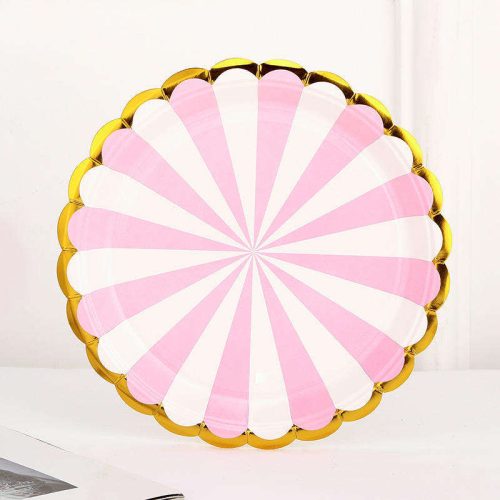Paper plates offer several benefits, which contribute to their popularity and widespread usage in various settings. Here are some advantages of using paper plates:
- Convenience: Paper plates are incredibly convenient, especially in situations where washing dishes is impractical or time-consuming. They are widely used at picnics, outdoor events, parties, and barbecues, where the focus is on enjoying the moment rather than dealing with cleanup.
- Time-saving: With paper plates, you can save a significant amount of time that would otherwise be spent washing, drying, and storing traditional dishes. After use, you can simply dispose of paper plates, eliminating the need for cleaning.
- Hygiene: Paper plates are typically manufactured in a clean and controlled environment, ensuring high levels of hygiene. They come in sealed packs, reducing the risk of contamination compared to reusing dishes that may not be thoroughly cleaned.
- Lightweight and portable: Paper plates are lightweight and easy to carry, making them ideal for outdoor activities and on-the-go meals. They are a convenient choice for picnics, camping trips, or any situation where transporting fragile or heavy dishes may be inconvenient.
- Versatility: Paper plates are available in a variety of sizes and designs, allowing you to choose the most suitable option for your needs. They can accommodate different types of food, from snacks to full meals. Additionally, paper plates often come with compartments, making it easier to separate different food items.
- Cost-effective: Paper plates are generally less expensive than purchasing and maintaining a large set of traditional dishes. They are a cost-effective solution for large gatherings or events where using disposable items makes more financial sense than investing in additional tableware.
- Environmental considerations: While paper plates are not as environmentally friendly as reusable dishes, they can still have advantages over plastic or Styrofoam alternatives. Many paper plates are made from renewable resources such as paper pulp, and they can be recycled or composted after use, reducing their impact on the environment.
- Safety: Paper plates are generally safe to use, as they do not leach harmful chemicals into food like certain plastic plates might. They are also less likely to cause injuries compared to glass or ceramic dishes, as they are less fragile and pose a lower risk of breakage.
Despite these benefits, it’s important to note that paper plates are designed for single-use and may contribute to waste generation. Considering sustainability and environmental concerns, it’s advisable to use them judiciously and explore reusable alternatives whenever possible.


